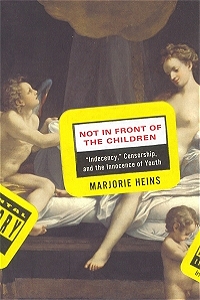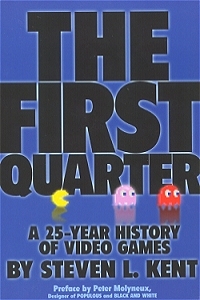
Resources
Computer
Games - Government Publications - Monographs
-
Journal
Articles - Magazine Articles - Newspaper
Articles -
World
Wide Web - Unpublished

 Monographs
Monographs
As it is quite difficult
to find monographs that address the computer games censorship issue directly,
particularly as it applies to Australia, books that address similar or
related topics that can be applied to the issue with the aim of better
understanding it often have to suffice. These texts directly or indirectly
address the issues of the nature of computer games
and their players, motivations behind the
stakeholders
in the debate, issues of possible violence and/or
degradation, as well as overseas responses
to the overall computer games censorship issue.
Cohen,
S. (1972). Folk devils and moral panics. London: Mac Gibbon and
Kee.
Although not directly related
to computer games censorship issues, this well-known sociological monograph
is vital for the understanding of the concept of moral panic, particularly
as a catalyst for any form of censorship. According to some contemporary
journal article writers (see Lumby, 1997
and Wark, 1994), moral panic explains
much about the movement to censor computer games. See also Victor,
1993.
Heins,
M. (2001). Not in front of the children: indecency, censorship, and
the innocence of youth. New York: Hill and Wang.
While this recent academic
work makes surprisingly little mention of computer games, it does seriously
challenge the central assumption behind so much computer game censorship,
namely that children must be protected in the interests of preserving their
innocence. Readers can make easy comparisons and links to computer
games censorship by reading about child protection in other areas of censorship
such as television and sex education.

Front cover of Not in front of the children by Marjorie
Heins.

Kent,
S. L. (2000). The first quarter: a 25-year history of video games.
Bothwell, Washington State, USA: BWD Press.
As part of a comprehensive
history of video games, with some reference to computer games, S. Kent
presents the details of the censorship controversies surrounding titles
such as: Custer's Revenge, Night
Trap, and Doom as played
out in the USA. He also makes mention of US Senate inquiries into
regulating computer and video games.

Creatures from one of the first video games - Pac Man -
feature on the front cover of The first quarter by Steven Kent.

Victor,
J. S. (1993).
Satanic panic: the creation of a contemporary legend.
Chicago: Open Court.
Another sociological monograph
not directly related to computer games censorship issues, it is nevertheless
valuable for an understanding of the concept of moral crisis, particularly
as a catalyst that leads to moral panic and thus censorship. It deals
mainly with Satanic controversies in the USA and associated examples of
moral crusades, but its principles can easily be applied to the computer
games censorship issue in order to get an even wider perspective than can
be provided using the concept of moral panic alone. See also Cohen,
1972.
Watson,
C., and Shuker, R. (1998). In the public good? Censorship in New
Zealand. Palmerston North, NZ: The Dunmore Press.
Significant portions of this
monograph deal directly with the computer games censorship issue, particularly
as it has been manifested in New Zealand and Australia. Some mention
is made of the sociological concept of moral panic
in connection with such censorship. The categories of games that
have proved most contentious with censorship authorities are listed and
analysed. Special reference is made to Phantasmagoria.